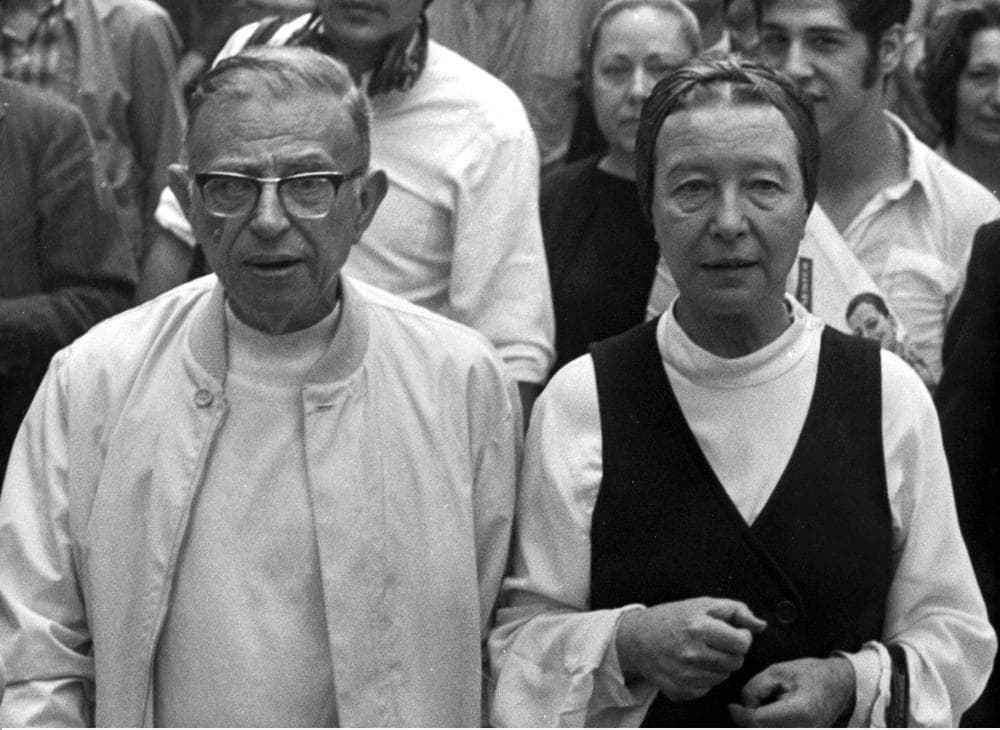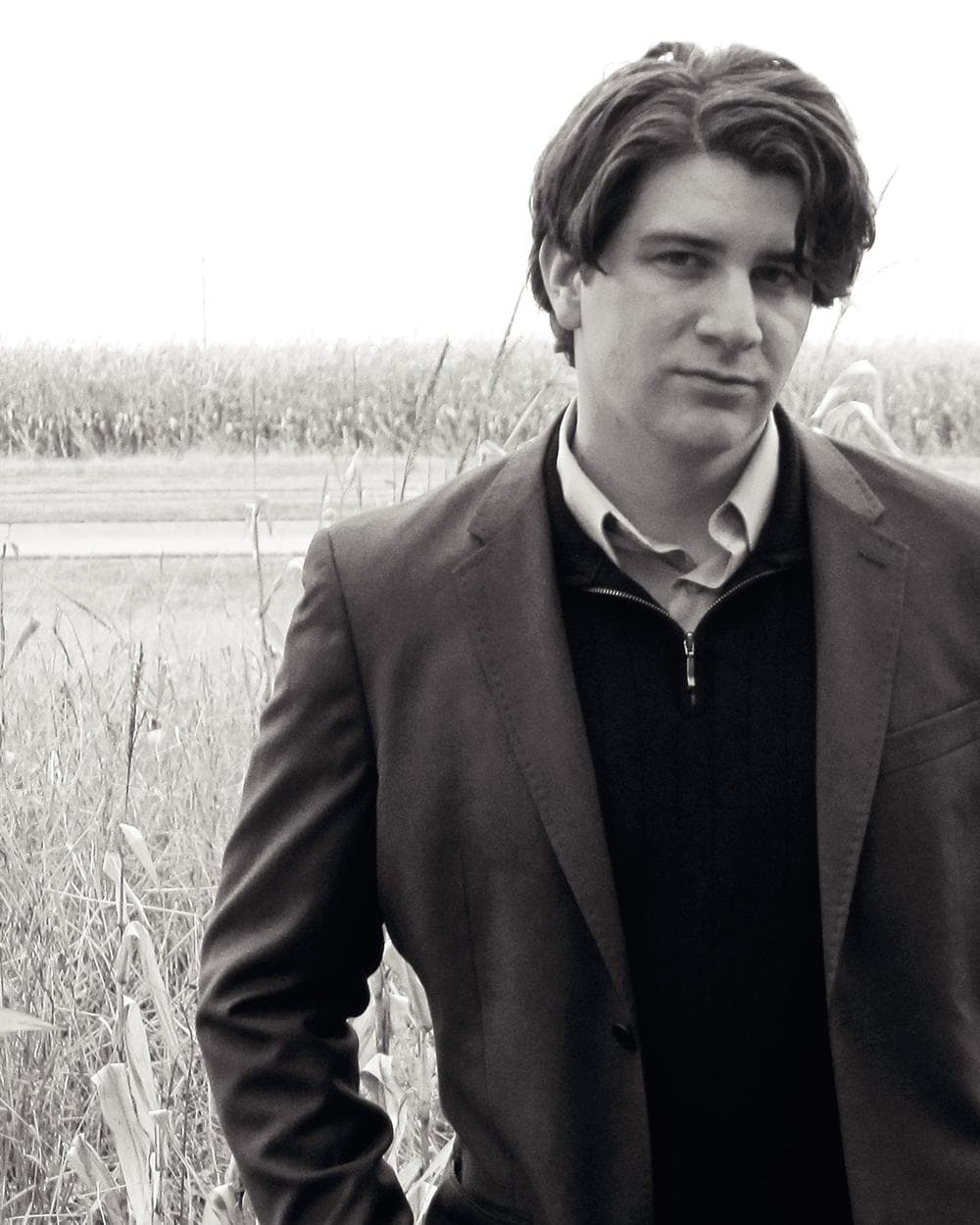Advertisement
Why You Shouldn't Trust A Philosopher's Love Advice
Resume
Jean-Paul Sartre adopted his mistress as his daughter. Frederick Nietzsche could not get a date. And Ayn Rand dedicated her classic, "Atlas Shrugged," to both her husband and her much younger lover.
Author and greeting card creator Andrew Shaffer tells of "Great Philosophers Who Failed At Love," in his new book, excerpted below.
- Here & Now: Book excerpts
- Leave a comment
Book Excerpt: Great Philosophers Who Failed At Love
By Andrew Shaffer
We all have questions about love; we all want to know the secrets to a successful relationship. Is she “the one”? Is it okay to date my boss? How do I know if my husband is cheating? It seems intuitive that we should look to wise men and women for the answers.
Philosophers have contemplated the most vexing questions, from ethics to politics to the very nature of being. If anyone can teach us about a concept as abstract as love, philosophers—the original “lovers of wisdom”*—should be at the top of the list. But a lover of wisdom and a wise lover are, as it turns out, two very different things.

While most of us have struck out at love before, the tales of many philosophers’ romantic hardships and indiscretions take the wedding cake. You might have forgotten an anniversary, but at least you didn’t strangle your wife (Louis Althusser), adopt your mistress as your daughter (Jean-Paul Sartre), or get exiled to another country for having an affair (Seneca the Younger).
The great Western philosophers—the men and women whose intellectual acrobatics are praised by professors in Philosophy 101 courses everywhere—have consistently sabotaged their own relationships with their neurotic tendencies. In or out of love, philosophers are overly critical, condescending, and holier-than-thou. Their theories are impenetrable, their positions contradictory, their probing questions a nuisance. Such temperamental behavior has made philosophers unsuitable candidates for marriage. It is not surprising that so many philosophers simply opted out of the love game altogether.
While far too many philosophers died miserable, bitter, and alone, a few did make it through their failures to have happy marriages. Like Albert Camus, whose life was cut short by a tragic car accident before his wife could discover the mistresses that he had hidden around the globe. Or Henry Ward Beecher, the infamous nineteenth century adulterer, whose wife was too busy raising their ten children to even give a thought to divorcing him. Or Bertrand Russell, who found that, at least when it comes to matrimony, the fourth time is the charm.
The truth is that this book contains just a sampling of the thousands of great minds who have failed at love. In every era of history, big brains and broken hearts have gone hand in hand, and the bigger they come, the harder they fail. Perhaps Bob Dylan was the wisest of all when he admitted: “You can’t be in love and wise at the same time.”
* Literally: The word “philosophy” comes from the ancient Greek word philosophia, a composite of philein (“to love”) and sophia (“wisdom”).
Copyright © 2011 By Andrew Shaffer
This segment aired on January 26, 2011.